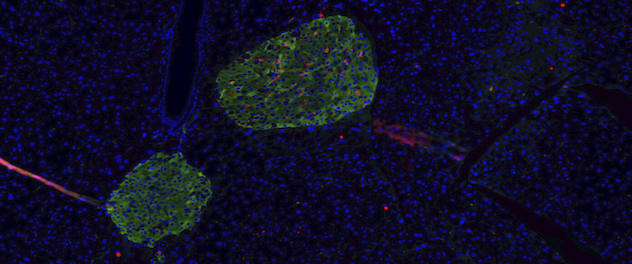 Discovering new therapeutics for metabolic disorders
Discovering new therapeutics for metabolic disorders
Studying the epigenetic and transcriptional mechanisms of diabetes pathogenesis is the primary research focus of Dr. Wei's lab. The lab's team seeks to identify novel targets and therapeutic approaches to prevent diabetes and other metabolic disorders.
Overview
Research in the Epigenomics of Metabolic Diseases Laboratory led by Zong Wei, Ph.D., is focused on investigating the fundamental mechanisms of diabetes, obesity and inflammation, and identifying therapeutic targets in metabolic diseases. Using both human stem cell-differentiated organoids and mouse models, the laboratory studies the epigenomic regulation of cellular dysfunction in diabetes and metabolic diseases, identifies novel therapeutic targets in obesity and inflammation, and explores the fundamental mechanisms of transcription and chromatin biology. To address these issues, the team employs a variety of tools, which include mouse models, epigenomic and computational tools, human organoid models, functional genomics, single cell multi-omics and proteomics.
Research areas the lab is currently exploring include:
- Signal-dependent epigenomic dynamics in diabetes and innate immunity
- Novel epigenetic regulators in metabolic diseases and chronic inflammation
- Crosstalk between pancreatic islets and their microenvironment
- Epigenetic modulation of glucocorticoid signaling in inflammation
- Developing next-generation multi-omic platforms to interrogate tissue heterogeneity
About Dr. Wei
Zong Wei, Ph.D., is an assistant professor of physiology in the Department of Physiology and Biomedical Engineering at Mayo Clinic College of Medicine and Science. Dr. Wei joined Mayo Clinic in 2019 following postdoctoral training at the Salk Institute for Biological Studies with Ronald M. Evans, Ph.D.